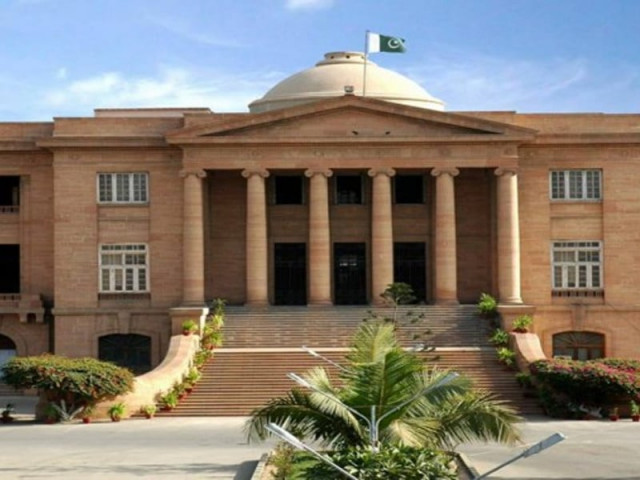SHC suspends KU's decision in Jahangiri case
Orders university not to take further action on complaint against IHC judge

In an interesting development, the Sindh High Court (SHC) has suspended Karachi University's decision to cancel the Bachelor of Laws (LLB) degree of Islamabad High Court (IHC) Justice Tariq Mehmood Jahangiri.
A division bench, comprising Justice Salahuddin Panhwar and Justice Amjad Ali Sahito, also barred the university from taking any further action on a complaint against Justice Jahangiri while hearing a petition filed by the judge.
In a meeting that later became controversial, the Karachi University's Syndicate on August 31 annulled the allegedly "invalid" degree of Justice Jahangiri on the recommendations of the university's Unfair Means (UFM) Committee.
The statement issued by the university after the meeting did not mention the name of Justice Jahangiri but noted that the committee had proposed the cancellation of "the degree and enrollment cards of candidates found guilty of unethical and immoral acts."
The decision came just hours after the detention of Syndicate member Dr Riaz Ahmed, who was reportedly picked up by police in an apparent attempt to prevent him from attending the key meeting.
Justice Jahangiri later challenged the Syndicate's decision in the SHC.
On Thursday, the petitioner's lawyer argued that the Unfair Means Committee and the Syndicate had declared Justice Jahangiri's degree invalid in an illegal manner, without adhering to the proper procedure.
Justice Panhwar inquired whether the university had taken similar actions in the past. He also questioned when the judge had obtained his degree and who had lodged the complaint. "It is said that Islamia Law College submitted the complaint against the judge," he noted.
The court was informed that Justice Jahangiri had received his LLB degree 33 years ago, in 1990.
Justice Sahito asked about the locus standi of the complainants. The complainants' lawyers responded that the complaint had been filed by some legal practitioners.
The counsel for Justice Jahangiri contended that Karachi University's Syndicate lacked the jurisdiction to make such a decision, arguing that only the Supreme Judicial Council (SJC) could address a complaint against a superior court judge.
He also highlighted the alleged detention of a Syndicate member during the meeting, purportedly to prevent him from raising objections to the move.
Justice Sahito advised the counsel to avoid "political discussions."
However, he said that when someone's degree is being canceled, the individual must be summoned by the university and issued a notice. "Anyone can approach the SJC, which may verify a judge's degree," he added.
The bench later suspended the recommendations of the Unfair Means Committee and the Syndicate's August 31 order. It also restrained Karachi University from taking further action regarding the matter.
The court issued notices to the deputy attorney general, the advocate general of Sindh, and others, requesting detailed responses within three weeks.
Justice Tariq Mehmood Jahangiri was one of six judges who wrote a letter to Chief Justice of Pakistan Qazi Faez Isa, accusing intelligence agencies of using coercive tactics to influence high and lower court judges in the federal capital.


















COMMENTS
Comments are moderated and generally will be posted if they are on-topic and not abusive.
For more information, please see our Comments FAQ